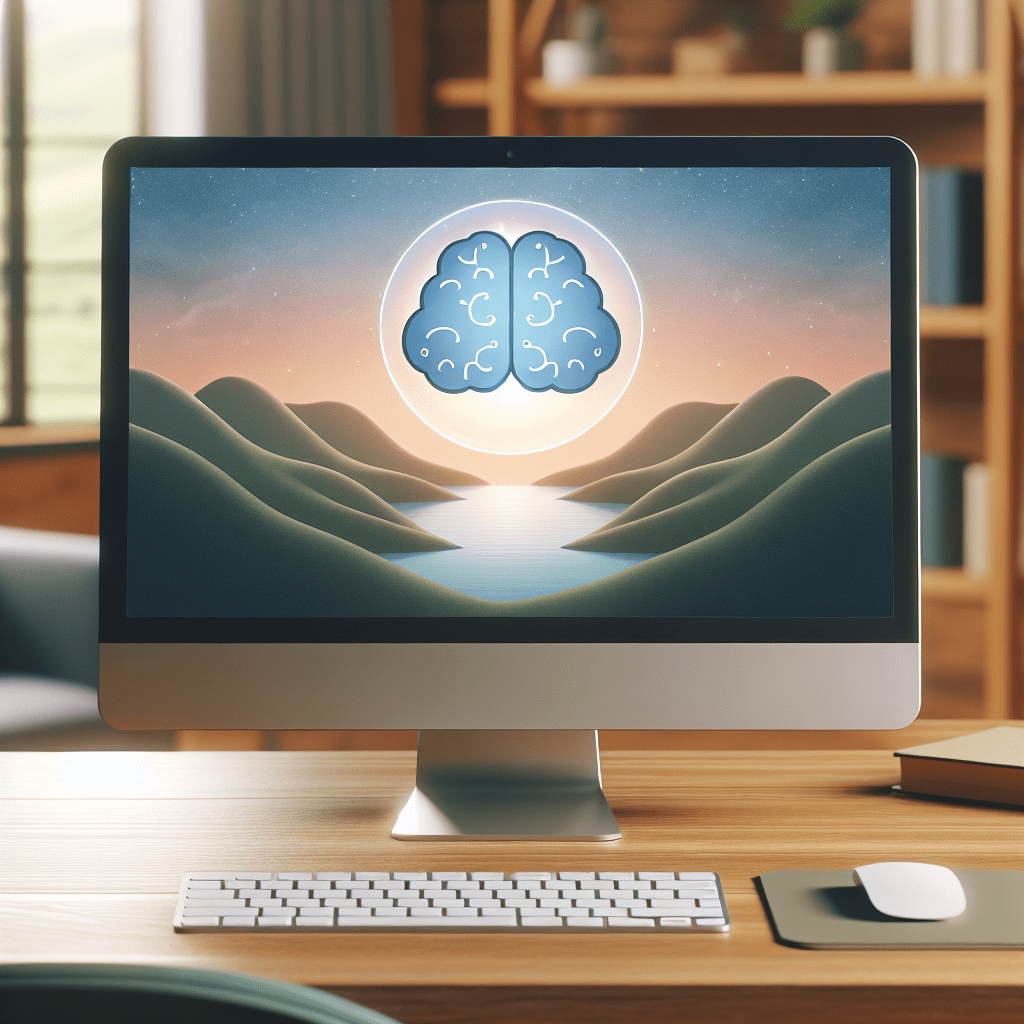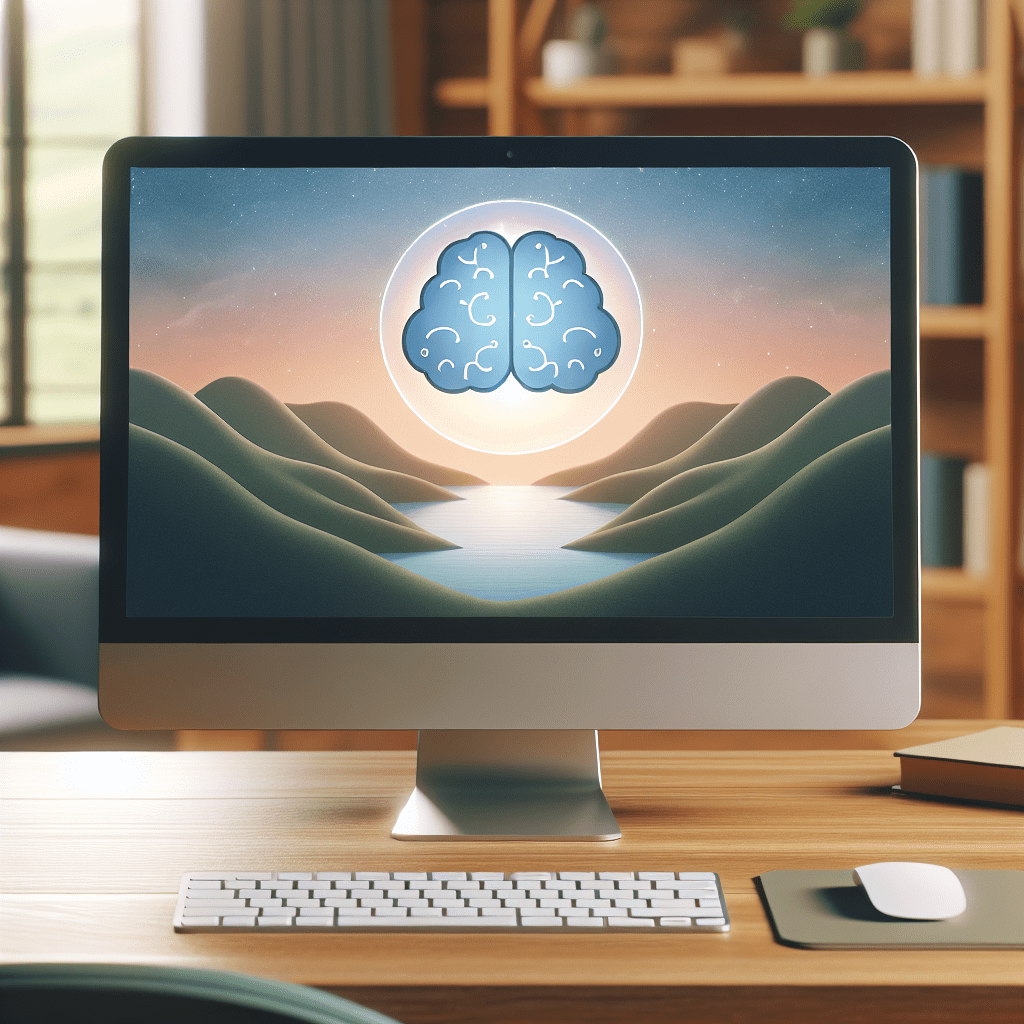Imagine being able to receive therapy for your mental health disorders from the comfort of your own home. Online therapy has become increasingly popular in recent years, offering a convenient and accessible alternative to traditional face-to-face counseling. But what types of mental health disorders can actually be effectively treated through this digital platform? From anxiety and depression to obsessive-compulsive disorder and even post-traumatic stress disorder, online therapy has shown promising results in helping individuals manage and overcome a wide range of mental health challenges. In this article, we will explore the various types of mental health disorders that can be successfully addressed through online therapy, providing you with valuable insights into this evolving field.

Anxiety Disorders
Generalized Anxiety Disorder
Generalized Anxiety Disorder (GAD) is a common mental health condition characterized by excessive and uncontrollable worry about various life situations. If you have GAD, you may find it challenging to control your worrying thoughts, even when there is no apparent cause for concern. Online therapy can be an effective treatment option for GAD, as it provides a convenient and accessible way to address your anxiety symptoms. Through online therapy, you can learn coping strategies, relaxation techniques, and cognitive-behavioral techniques to manage and reduce your anxiety.
Panic Disorder
Panic Disorder is a type of anxiety disorder characterized by sudden and intense feelings of fear, often accompanied by physical symptoms such as heart palpitations, shortness of breath, and dizziness. Online therapy can be beneficial in treating Panic Disorder as it allows you to work with a therapist from the comfort of your own home, reducing the stress and anxiety associated with going to in-person therapy appointments. Through online therapy, you can receive guidance and support to understand and manage your panic attacks, and learn techniques such as deep breathing exercises and cognitive restructuring to alleviate symptoms.
Social Anxiety Disorder
Social Anxiety Disorder, also known as social phobia, is characterized by intense fear and discomfort in social situations. Online therapy can be a helpful treatment option for Social Anxiety Disorder, as it provides a safe and controlled environment to work on your fears and develop coping strategies. Through online therapy, you can gradually expose yourself to social situations, receive guidance on challenging negative thoughts and beliefs, and learn relaxation techniques to manage your anxiety in social settings.
Specific Phobias
Specific Phobias are characterized by an intense and irrational fear of a specific object or situation. Online therapy can be an effective treatment option for specific phobias, as it allows you to address your fears in a controlled and gradual manner. Through online therapy, you can work with a therapist to develop a personalized treatment plan that includes exposure therapy, cognitive-behavioral techniques, and relaxation exercises to manage and overcome your phobia.
Obsessive-Compulsive Disorder
Obsessive-Compulsive Disorder (OCD) is a mental health condition characterized by unwanted and intrusive thoughts (obsessions) and repetitive behaviors or rituals (compulsions). Online therapy can be beneficial in treating OCD as it provides a supportive and structured environment to address your symptoms. Through online therapy, you can work with a therapist who specializes in OCD to develop a treatment plan that may include exposure and response prevention therapy, cognitive restructuring, and medication management if needed.
Depressive Disorders
Major Depressive Disorder
Major Depressive Disorder (MDD) is a common mood disorder characterized by persistent feelings of sadness, loss of interest, and a lack of energy. Online therapy can be an effective treatment option for MDD as it provides a convenient and accessible way to receive support and treatment. Through online therapy, you can work with a therapist to identify the underlying causes of your depression, develop coping strategies, and learn techniques such as cognitive restructuring and behavioral activation to improve your mood.
Persistent Depressive Disorder
Persistent Depressive Disorder (PDD), also known as dysthymia, is a chronic form of depression characterized by long-lasting feelings of sadness and hopelessness. Online therapy can be beneficial in treating PDD as it allows for regular and ongoing support from a therapist. Through online therapy, you can work with a therapist to explore the underlying causes of your depression, develop healthy coping mechanisms, and learn strategies to improve your overall well-being.
Postpartum Depression
Postpartum Depression (PPD) is a mood disorder that affects new mothers, typically within the first few weeks or months after giving birth. Online therapy can be an effective treatment option for PPD, as it provides a convenient and accessible way for new mothers to receive support and treatment. Through online therapy, new mothers can work with a therapist who specializes in PPD to address the challenges and emotional struggles that come with the postpartum period, develop coping strategies, and receive guidance on self-care and managing stress.
Bipolar and Related Disorders
Bipolar I Disorder
Bipolar I Disorder is a mood disorder characterized by episodes of mania, which include elevated mood, increased energy, and impulsive behavior, as well as episodes of depression. Online therapy can be helpful in managing Bipolar I Disorder as it provides a consistent and accessible platform for ongoing support and treatment. Through online therapy, individuals with Bipolar I Disorder can work with a therapist to identify triggers, develop coping strategies, and learn techniques such as mood tracking and self-care to effectively manage their symptoms.
Bipolar II Disorder
Bipolar II Disorder is similar to Bipolar I Disorder but is characterized by less severe episodes of mania, known as hypomania, and more frequent episodes of depression. Online therapy can be beneficial for individuals with Bipolar II Disorder as it allows for consistent and accessible support and treatment. Through online therapy, individuals can work with a therapist to understand the patterns of their mood swings, develop coping strategies, and learn techniques to manage both depressive and hypomanic episodes effectively.
Cyclothymic Disorder
Cyclothymic Disorder is a milder form of bipolar disorder characterized by frequent mood swings between mild depression and hypomania. Online therapy can be an effective treatment option for Cyclothymic Disorder as it offers ongoing support and guidance. Through online therapy, individuals can work with a therapist to track their mood swings, develop coping strategies, and learn techniques such as mindfulness and self-care to stabilize their mood and improve their overall well-being.

Trauma- and Stressor-Related Disorders
Post-Traumatic Stress Disorder (PTSD)
Post-Traumatic Stress Disorder (PTSD) is a mental health condition that can develop after experiencing or witnessing a traumatic event. Online therapy can be an effective treatment option for PTSD, as it provides a safe and controlled environment for individuals to process and heal from their trauma. Through online therapy, individuals can work with a therapist trained in trauma-focused therapy techniques to address their symptoms, develop coping strategies, and learn techniques such as grounding exercises and relaxation techniques to manage distressing memories and emotions.
Acute Stress Disorder
Acute Stress Disorder is similar to PTSD but occurs within the first month after experiencing a traumatic event. Online therapy can be beneficial in treating Acute Stress Disorder, as it offers a flexible and convenient way to receive support during the critical initial stages of trauma recovery. Through online therapy, individuals can work with a therapist to process and make sense of the traumatic experience, develop coping strategies, and receive guidance on self-care and stress management.
Eating Disorders
Anorexia Nervosa
Anorexia Nervosa is an eating disorder characterized by an intense fear of gaining weight and a distorted body image. Online therapy can be a helpful treatment option for individuals with Anorexia Nervosa as it provides a non-judgmental and accessible platform to address the underlying psychological factors contributing to the disorder. Through online therapy, individuals can work with a therapist to explore their relationship with food, develop healthier eating habits, and learn coping strategies to challenge negative thoughts and beliefs related to body image and weight.
Bulimia Nervosa
Bulimia Nervosa is an eating disorder characterized by episodes of binge eating followed by compensatory behaviors such as self-induced vomiting or excessive exercise. Online therapy can be beneficial in treating Bulimia Nervosa as it offers a convenient and confidential way to receive support and treatment. Through online therapy, individuals can work with a therapist to address the underlying emotional factors driving the binge-purge cycles, develop healthier coping mechanisms, and learn strategies to change disordered eating behaviors.
Binge-Eating Disorder
Binge-Eating Disorder is an eating disorder characterized by recurring episodes of uncontrollable binge eating, without the compensatory behaviors seen in Bulimia Nervosa. Online therapy can be an effective treatment option for individuals with Binge-Eating Disorder as it provides a supportive and structured environment to address underlying emotional and psychological factors contributing to the disorder. Through online therapy, individuals can work with a therapist to develop a healthier relationship with food, learn coping strategies to manage emotional eating, and receive support throughout their recovery journey.
Substance-Related and Addictive Disorders
Alcohol Use Disorder
Alcohol Use Disorder is a chronic condition characterized by the inability to control or stop drinking despite negative consequences. Online therapy can be a beneficial treatment option for individuals with Alcohol Use Disorder as it offers a convenient and accessible way to receive support and guidance. Through online therapy, individuals can work with a therapist to identify the underlying factors contributing to their drinking habits, develop coping strategies to manage cravings and triggers, and learn techniques such as mindfulness and relapse prevention to maintain long-term sobriety.
Drug Addiction
Drug Addiction is a complex condition characterized by compulsive drug-seeking and use, despite harmful consequences. Online therapy can be an effective treatment option for drug addiction as it provides ongoing support and guidance for individuals on their journey to recovery. Through online therapy, individuals can work with a therapist to explore the underlying factors contributing to their addiction, develop strategies to manage cravings and triggers, and learn techniques such as cognitive-behavioral therapy and motivational interviewing to overcome drug dependency and achieve lasting sobriety.
Personality Disorders
Borderline Personality Disorder
Borderline Personality Disorder (BPD) is a mental health condition characterized by unstable relationships, intense emotions, and a distorted self-image. Online therapy can be a helpful treatment option for individuals with BPD as it offers a consistent and structured platform for ongoing support and guidance. Through online therapy, individuals can work with a therapist trained in dialectical behavior therapy (DBT) to develop skills for emotional regulation, improve interpersonal relationships, and enhance overall well-being.
Antisocial Personality Disorder
Antisocial Personality Disorder is a mental health condition characterized by a disregard for the rights and feelings of others, impulsivity, and a lack of empathy or remorse. Online therapy can be beneficial in treating Antisocial Personality Disorder by providing a safe and controlled environment for individuals to explore their behaviors, emotions, and relationships. Through online therapy, individuals can work with a therapist to develop insight into their thought patterns and behaviors, learn impulse control techniques, and explore strategies for building healthier interpersonal connections.
Narcissistic Personality Disorder
Narcissistic Personality Disorder is a mental health condition characterized by an inflated sense of self-importance, a need for excessive admiration, and a lack of empathy for others. Online therapy can be an effective treatment option for individuals with Narcissistic Personality Disorder as it offers a non-confrontational and supportive platform to explore their emotions and behaviors. Through online therapy, individuals can work with a therapist to develop a deeper understanding of the underlying insecurities driving their narcissistic traits, learn empathy-building skills, and explore techniques for healthier self-esteem and interpersonal relationships.
Schizophrenia Spectrum and Other Psychotic Disorders
Schizophrenia
Schizophrenia is a chronic and severe mental health disorder characterized by hallucinations, delusions, disorganized thinking, and a lack of motivation. Online therapy can be a beneficial adjunct to traditional treatment for Schizophrenia, as it provides ongoing support and guidance. Through online therapy, individuals with Schizophrenia can work with a therapist to address symptom management, develop coping strategies, and learn techniques such as cognitive remediation and social skills training to improve their overall functioning and quality of life.
Schizoaffective Disorder
Schizoaffective Disorder is a mental health condition characterized by symptoms of both schizophrenia and a mood disorder such as depression or bipolar disorder. Online therapy can be helpful in managing Schizoaffective Disorder as it provides ongoing support and treatment for both the psychotic and mood symptoms. Through online therapy, individuals can work with a therapist to develop a comprehensive treatment plan that includes medication management, symptom monitoring, and psychoeducation to effectively manage their symptoms and improve their overall well-being.
Sleep Disorders
Insomnia
Insomnia is a sleep disorder characterized by difficulty falling asleep, staying asleep, or achieving restorative sleep. Online therapy can be an effective treatment option for individuals with insomnia as it offers a convenient and accessible platform to address sleep-related concerns. Through online therapy, individuals can work with a therapist to identify and address the underlying factors contributing to their insomnia, develop healthy sleep habits, and learn relaxation techniques to improve their sleep quality.
Sleep Apnea
Sleep Apnea is a sleep disorder characterized by pauses in breathing during sleep, resulting in disrupted sleep patterns and daytime sleepiness. Online therapy can play a supportive role in managing Sleep Apnea, as it provides a platform for education, behavior modification, and emotional support. Through online therapy, individuals can work with a therapist to develop strategies to improve sleep hygiene, adhere to recommended treatments such as continuous positive airway pressure (CPAP), and address any emotional concerns related to the condition.
Narcolepsy
Narcolepsy is a sleep disorder characterized by excessive daytime sleepiness and sudden uncontrollable episodes of falling asleep. Online therapy can be beneficial in managing Narcolepsy, as it offers a convenient and flexible way to receive support and guidance. Through online therapy, individuals can work with a therapist to develop strategies to improve sleep hygiene, manage daytime sleepiness, and learn techniques to cope with the challenges of living with Narcolepsy.
Attention-Deficit/Hyperactivity Disorder (ADHD)
Inattentive Type
ADHD, predominantly inattentive type, is a neurodevelopmental disorder characterized by difficulty sustaining attention, disorganization, and forgetfulness. Online therapy can be an effective treatment option for individuals with inattentive-type ADHD as it offers a structured and supportive environment to address their challenges. Through online therapy, individuals can work with a therapist to develop strategies for organization, time management, and attention regulation, and learn techniques such as mindfulness and cognitive-behavioral therapy to improve their focus and overall functioning.
Hyperactive-Impulsive Type
ADHD, predominantly hyperactive-impulsive type, is a neurodevelopmental disorder characterized by excessive levels of activity, impulsivity, and difficulty regulating behavior. Online therapy can be beneficial in managing hyperactive-impulsive type ADHD as it provides ongoing support and guidance in developing coping strategies. Through online therapy, individuals can work with a therapist to learn impulse control techniques, develop self-regulation skills, and explore strategies for improving relationships and managing the impact of ADHD on daily life.
Combined Type
ADHD, combined type, is a neurodevelopmental disorder characterized by a combination of inattentive and hyperactive-impulsive symptoms. Online therapy can be an effective treatment option for individuals with combined type ADHD as it provides a comprehensive and flexible approach to address their challenges. Through online therapy, individuals can work with a therapist to develop personalized strategies for organization, attention regulation, impulse control, and self-care, allowing them to improve their overall functioning and well-being.
In conclusion, a wide range of mental health disorders can be effectively treated through online therapy. Whether you are dealing with anxiety, depression, bipolar disorder, trauma-related disorders, eating disorders, substance-related and addictive disorders, personality disorders, psychotic disorders, sleep disorders, or ADHD, online therapy provides a convenient and accessible platform for support and treatment. By working with a licensed therapist, you can receive the guidance, tools, and strategies necessary to manage your symptoms, improve your well-being, and lead a more fulfilling life. Don’t hesitate to explore the options available and find the online therapy platform that suits you best. Remember, help is just a click away!

